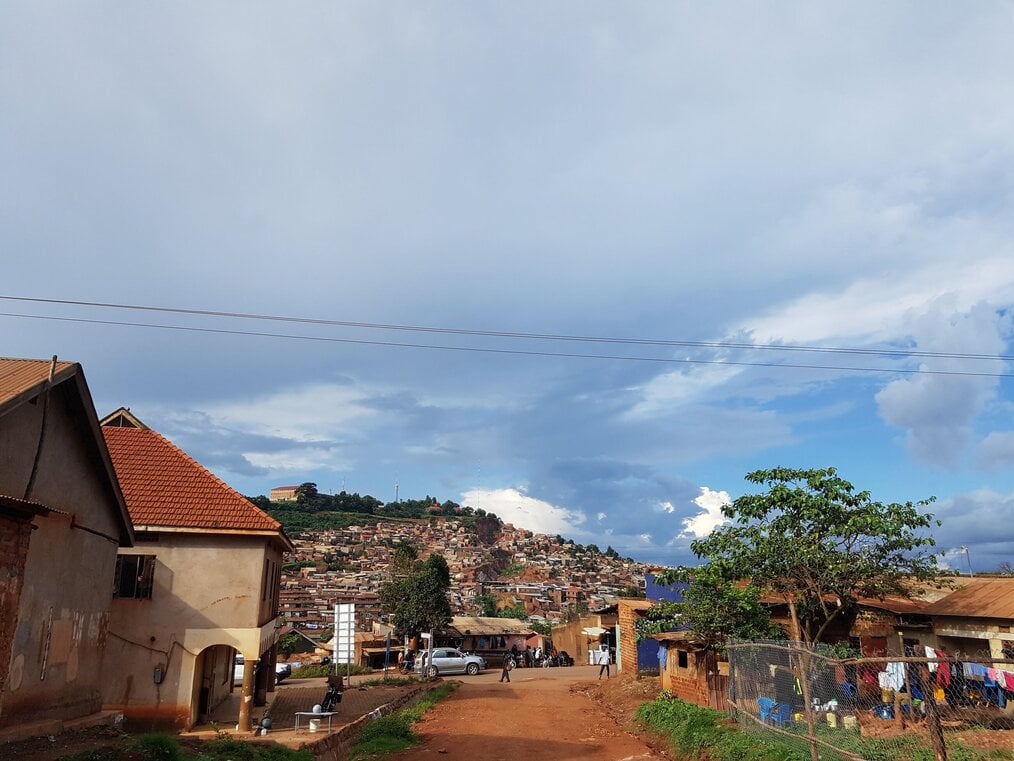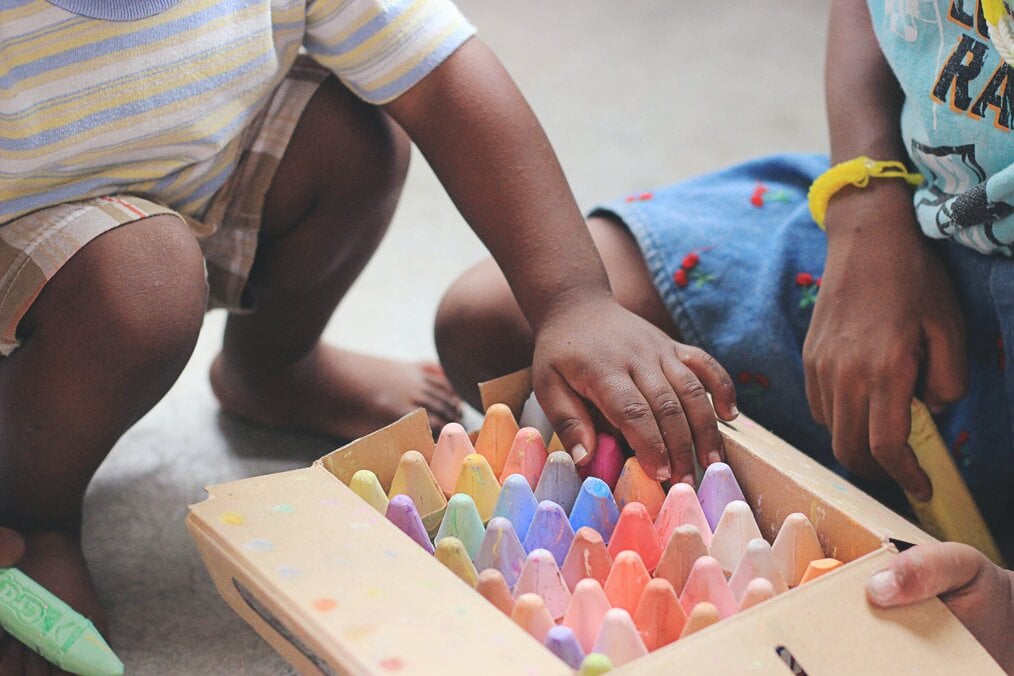Think Carefully Before Volunteering with Orphanages Abroad
Considering volunteering abroad at an orphanage? Before you make that decision, find out what the experts at Freedom United have to say about this voluntourism trend which puts children at risk and perpetuates child trafficking.
Volunteering abroad can be a rewarding experience for both volunteers and the communities that welcome volunteer work, but some placements can be actively harmful despite our best intentions.
In recent years, the voluntourism sector has been put under the spotlight and asked to reexamine its position on orphanage volunteer placements as the evidence linking such placements to child trafficking and exploitation continues to build. Decades of research demonstrating the negative impacts of institutionalization on a child’s development has resulted in the child protection sector widely accepting that orphanages and residential care settings aren’t the best place for a child to grow up.
Volunteering in orphanages can also contribute to orphanage trafficking. While organizations offering placements in orphanages may not knowingly promote the trafficking or abuse of children, they have an important role to play in supporting communities around the world to bring an end to this cycle of exploitation.
But volunteering your skills with children can still be done responsibly outside of a residential care setting, such as volunteering in schools. Help us put an end to orphanage trafficking by volunteering in other childcare settings instead.
How Can Orphanage Volunteering Drive Trafficking?

An estimated 8 million children around the world are living in orphanages despite the fact that 80% of these children have at least one parent or family member that is able to look after them with the right support.
You might be thinking, “What’s wrong with volunteering at or donating to an orphanage? Aren’t these kids in need of help?”
You’re right, but plenty of evidence shows that institutional care is not the best setting for a child’s development, and worryingly, fraudulent orphanages appear with children – who often have a living parent or family member that can look after them with the right support – being trafficked into these institutions simply to elicit donations from volunteers from abroad.
Attracted by the funding orphanages receive from donations and organizations offering ‘voluntourism’ placements, unscrupulous orphanage directors effectively turn children into commodities by ensuring there is a constant supply of children available to attract funding.
Traffickers and unscrupulous orphanage directors know that they are able to exploit a families’ perceived lack of options by offering to take their child away to give them an education and better life opportunities.
Instead, children are placed in institutions where they are exploited, abused, forced to work and at risk of being trafficked again to repeat the cycle and elicit more donations from tourists.
Children may not always have the ability to advocate for themselves, so it can take years for the relevant authorities to reunite them with their families. In the meantime, tourists volunteering in orphanages may be completely unaware that some, or all of the children there in fact have families that could be looking after them.
What Does Orphanage Trafficking Look Like?
In 2017 it was reported that in Haiti, families had been paid 75 USD to give their children away. In a country where one in four people lives below the national poverty line of 1.23 USD a day, extreme poverty creates the conditions that drives families to sell or give their children to orphanages on false promises they will receive an education, food, or care.
The situation in Haiti is replicated across Southeast Asia and has also been reported on by child exploitation NGO ECPAT in Nepal and Uganda. In Nepal, orphanage directors have reportedly refused to release children even where they have been requested to do so by parents. In one case, an orphanage director extorted a mother who believed her two children were in school but searched and located them at his orphanage. Instead of releasing the children to her, the orphanage director insisted the mother pay him 144,000 rupees (1,440 USD) for two years of ‘care’ at the orphanage.
Last year, authorities in Nigeria arrested a suspected orphanage trafficker who had reportedly kept 74 children in an institution under the guise of fostering them and providing them with an education. Eleven of the children had in fact been abducted.
What Can We do to Help End Orphanage Trafficking?

The causes of institutionalization are complex and varied, but work by organizations such as Lumos, Better Care Network, Next Generation Nepal, ECPAT and others has demonstrated the institutionalization of children and volunteering is creating opportunities for traffickers to exploit. Through her research and her own experiences of volunteering in an orphanage, Dr. Kate van Doore is a leading legal expert on orphanage trafficking whose work focuses on putting an end to children being exploited for profit in orphanages. She urges us all to reconsider volunteering in orphanages:
“Eighty years of research shows that institutional care harms children. If you are supporting an orphanage, like I was, then please ask the orphanage some basic questions about how they work to ensure children can grow up at home in their family.
Ask them whether and how they are registered, and whether they comply with the United Nations Guidelines on Alternative Care. Ask them how they are focused on supporting children in families, not orphanages.”
Orphanage trafficking has recently begun to be formally recognized by national and international agencies as a form of modern slavery, perpetuated by the opportunity presented to traffickers in the form of orphanage volunteering.
Thirty years ago, the United Nations General Assembly adopted the Convention on the Rights of the Child in a historic commitment to protect the world’s children. Since then, the well-documented harms of institutionalization and orphanage trafficking have spurred the development of international standards to acknowledge the risks associated with orphanage tourism.
In 2019, we were glad to see a new resolution to the Child’s Rights Convention calling on States to: “take action to prevent the trafficking and exploitation of children in care facilities or otherwise deprived of parental care. This includes addressing the harms related to volunteering programs in orphanages, including in the context of tourism, which can lead to trafficking and exploitation.” In the same year, the U.K. also issued official Travel Advice warning of the harms and risks of orphanage volunteering.
It's encouraging to see the international community recognizing how volunteering in orphanages can put children at risk of trafficking and abuse – yet, some volunteer tour operators continue to offer these placements.
But we each have the power to raise awareness of the harms of orphanage volunteering and demand change from the voluntourism industry. Volunteer tour operators can stem the demand for orphanage volunteering, reducing the incentive for traffickers to ensure there’s a constant flow of children available to keep attracting foreign volunteers and donations.
So, what can you do now? Two simple things:
- Raise awareness of orphanage trafficking by sharing this article with a friend.
- Join Freedom United’s campaign to end orphanage trafficking.
Over 100,000 people around the world have already joined this campaign urging volunteer tour operators to commit to stop offering placements in orphanages as part of tourism packages. Now it’s your turn to take action!
If you’re still thinking about volunteering in an orphanage, ask the orphanage whether they follow the United Nations Guidelines on Alternative Care and how they’re supporting reintegrating children into community-based care settings. If you’re ever unsure of an orphanage, it’s safest to find an alternative volunteer placement.
Together, we can help put an end to orphanage trafficking.
This article was originally published in February 2016, and it was updated in February 2021.
